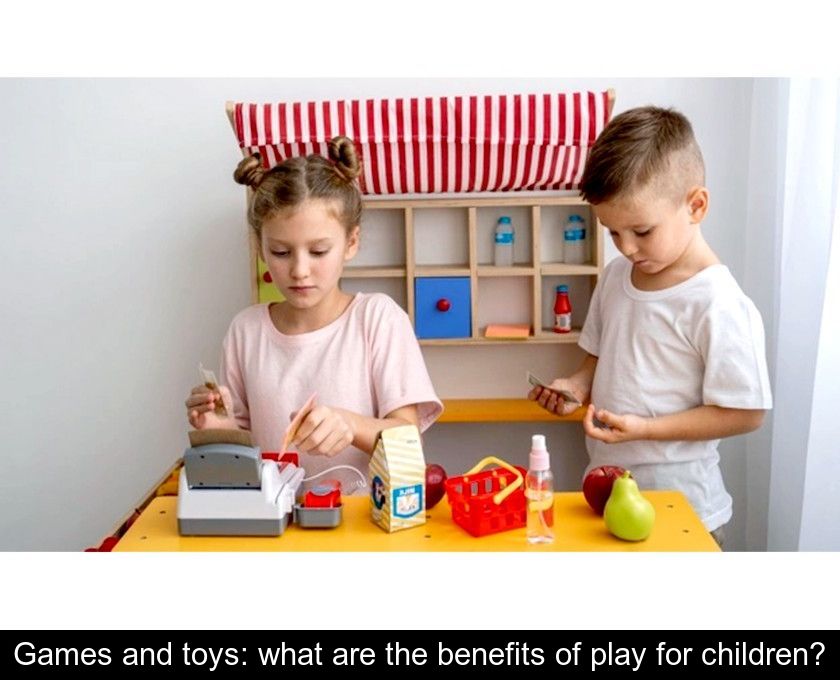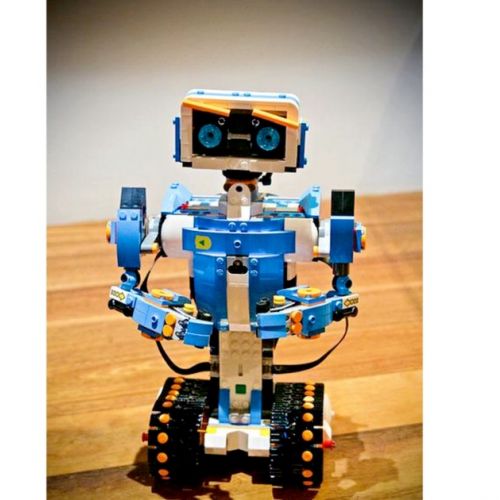Games And Toys: What Are The Benefits Of Play For Children?
As Santa prepares to place all sorts of toys and games under the tree, you may be wondering what type of gift is most beneficial to children's development. To encourage parents to rediscover the pleasure of playing as a family, we've listed the benefits of play for children.
Play is an innate and essential activity
Play is an innate activity in children. Toddlers play spontaneously, because it's fun... but not only that!
For young children, playing is an essential activity that helps them make discoveries, better understand the world around them and develop well.
Children have an innate attraction to play and, outside of school time, playing should be their main occupation.
Moreover, it should be emphasized, for parents concerned with focusing on 'educational' activities, that a child who plays for fun is not wasting time.
Playing is a very serious business for children, from the first months of life, to develop their intelligence and creativity.
It is a mine of benefits for their development
Play is a wealth of benefits at any age and a good way to develop a child's confidence.
In toddlers, play has positive effects on motor and sensory development. Babies who have fun manipulating objects, looking at them and putting them in their mouths discover colors, textures, shapes, sounds and tastes.
All his senses are then awakened and his brain works hard to register new knowledge.
Later, when the child can walk, games offer him the opportunity to run, jump, throw a ball and this allows him to strengthen his muscles, his sense of balance and his physical abilities.
Of course, play also contributes to children's intellectual development: it increases their creativity, imagination and problem-solving skills.
Play allows for skill development and challenges without feeling judged. In fact, it is increasingly used not only in preschool but also in elementary school to facilitate learning.
It's a way to socialize
In terms of socialization, playing allows you to learn to live with others.
In fact, playing with other children allows one to learn to share, to wait one's turn, to compromise and to settle small disputes.
Playing with others (with family or friends) thus helps develop social intelligence and vocabulary, learn to express ideas and make oneself understood.
Playing together also offers children experiences of cooperation and confrontation in a secure setting. It strengthens the bonds and complicity between players as long as everyone plays the game and has fun.
It is a family activity with no age limit since, as Friedrich Nietzsche wrote, 'Every man hides within himself a child who wants to play.'
Educational toys are not essential
While it is undeniable that play is essential to a child's development, it is not necessary to focus on educational games and toys.
In fact, any object can be educational if it allows the child to think, imagine and move. Any activity that allows the child to make up stories, sort or assemble objects is educational.
Above all, it is important to play regularly with your children or to let them play as they please, just for fun and without expecting any immediate benefit.
A good game is by definition free and unselfish. If there is any other intention, such as a specific educational goal to be achieved, it is not play!
Experts are unanimous in saying that the most important thing is not to have a room full of toys.
In fact, children know how to have fun with three times nothing and invent stories with simple figurines, dolls, stuffed animals, Lego or Playmobil... even with objects that are not toys!
All these games are very popular because they leave room for the child's imagination and allow him to create his own universe. This type of toy is just a support for the boundless imagination of children.
Besides, if your child prefers to play with the cardboard wrapping rather than the toy he received at Christmas, it is precisely because the wrapping opens up more possibilities and your child can make what he wants out of it (a cabin or a castle, a Disguise etc.).
Give children time to play
If you want your children to reap the multiple benefits of play, give them the opportunity to play as often as possible.
Allow them time to invent games without interrupting them. This also means not overloading their schedule, so that they have free time for play.
Make a variety of toys and objects available to them, such as making music, dressing up and dancing.
Also offer your children to play in different places, at home but also outside so that they can have fun with other children.
Going outside with your child is a good way to encourage them to move more, to take (small) risks, to take on challenges and therefore to gain self-confidence.
On the other hand, let your child choose freely if he wants to play alone or with other children. It's up to them to decide.
Also, avoid imposing your rules of the game when playing with children. If you let them direct the play, they will develop more imagination, independence and self-confidence.







